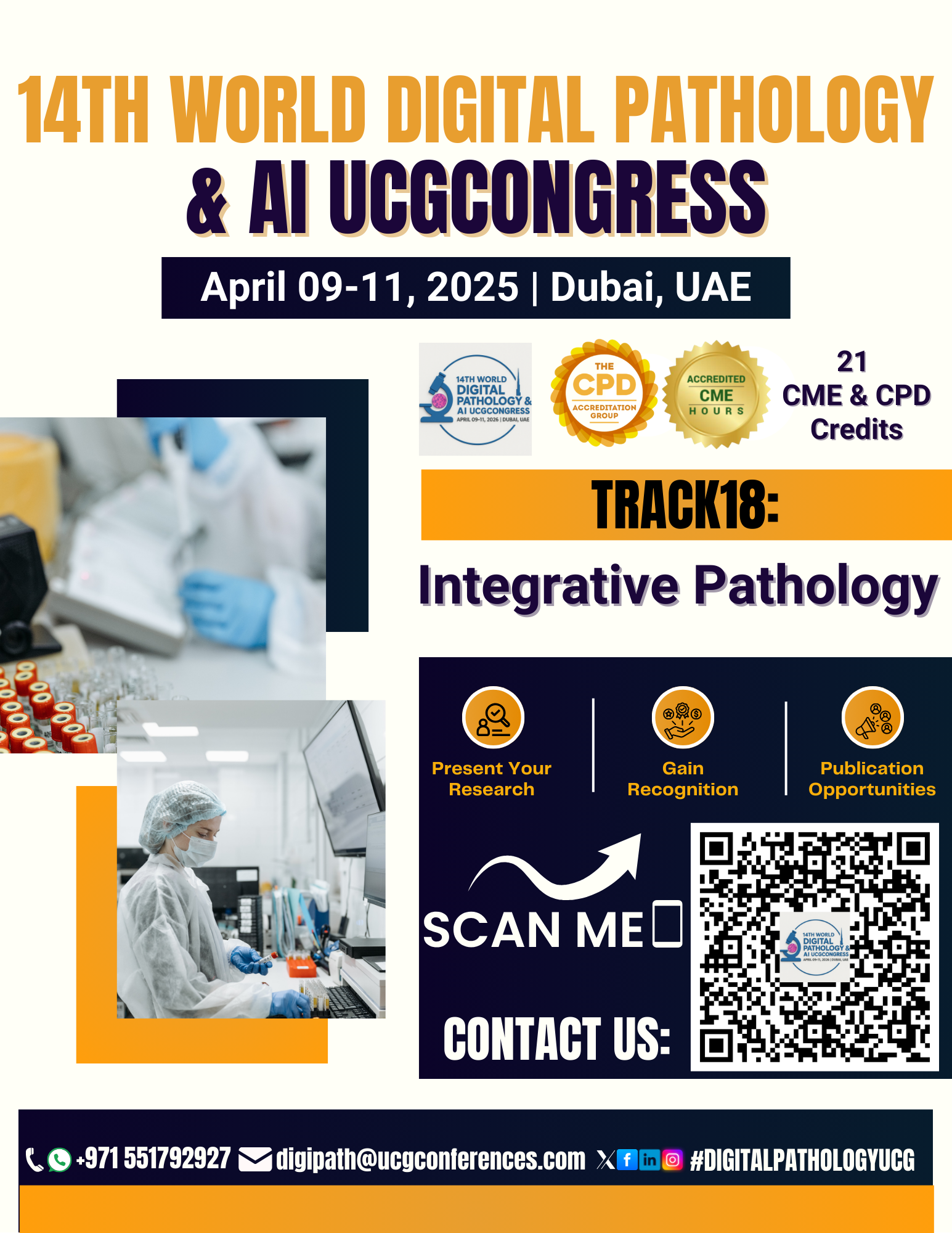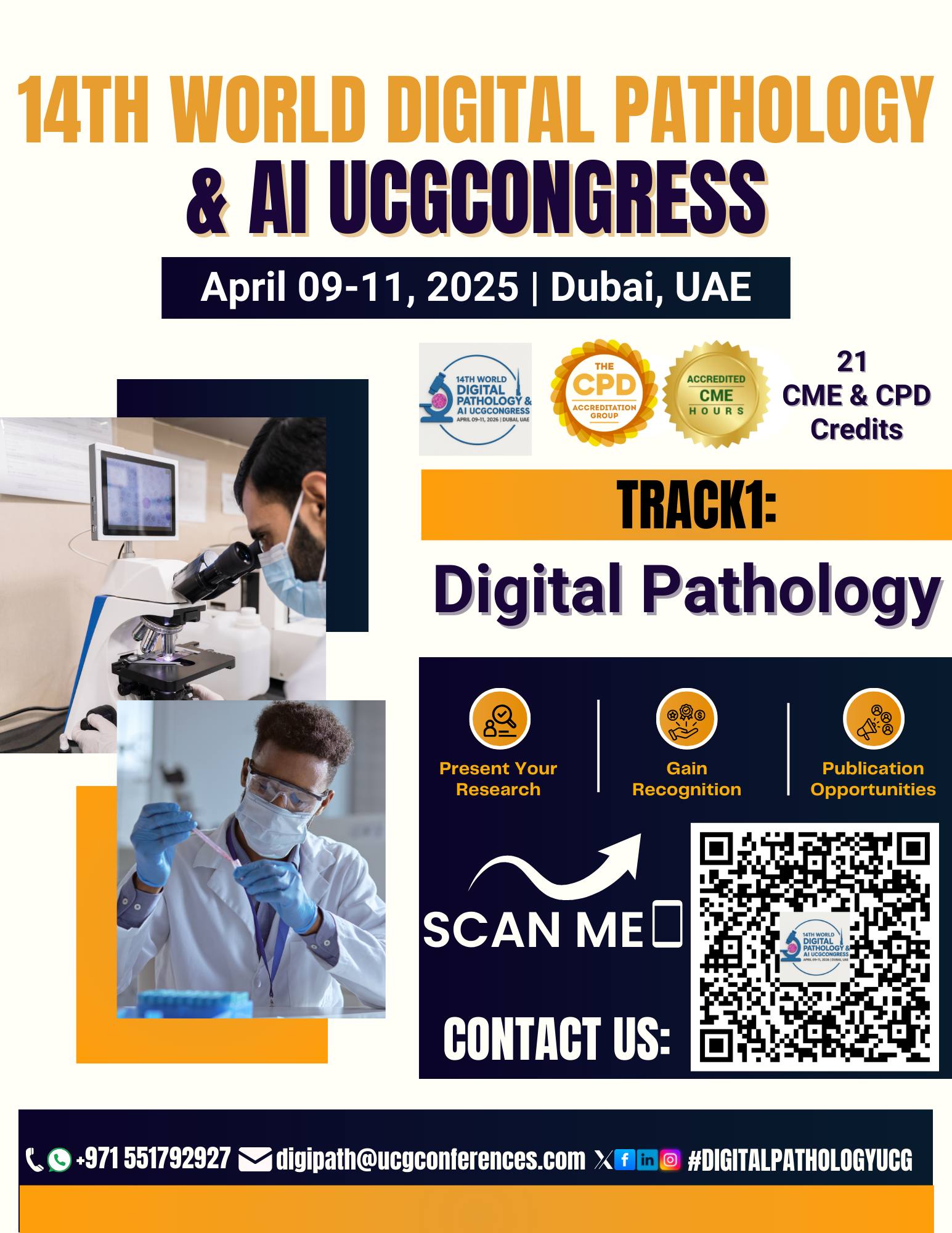



Sub track:-
Enhanced Image Quality Quantitative Analysis, Faster Turnaround Times,...

Sub track:-
Integration of Imaging Modalities, Advanced Image...

Track Overview:
Integrative Pathology is an emerging field that
combines multiple diagnostic approaches and technologies to provide a more
comprehensive understanding of disease. By integrating molecular, genetic, and
digital pathology data with traditional histopathology, integrative pathology
aims to enhance diagnostic precision, improve personalized treatment
strategies, and facilitate better patient outcomes. This track will explore the
integration of diverse diagnostic methods, with a focus on how they work
together to advance both clinical and research applications in pathology.
Key Topics:
Multimodal Diagnostics in Pathology: Combining
digital pathology, molecular diagnostics, genomics, and proteomics to create a
comprehensive view of disease.
Integration of Genomic and Histopathologic Data:
How combining genomic data with histopathological imaging enables more accurate
disease classification, prognosis prediction, and personalized treatment.
Digital Pathology and Molecular Pathology
Integration: Exploring how digital pathology enhances molecular pathology by
providing high-quality imaging for molecular assays and improving data
visualization and analysis.
Artificial Intelligence in Integrative Pathology:
The role of AI and machine learning in integrating complex data from various
sources to enable more efficient and accurate disease diagnosis and treatment
planning.
Clinical Applications of Integrative Pathology:
Practical examples of how integrative pathology is being applied in oncology,
infectious diseases, and other areas of medicine to improve patient care.
Challenges and Future Directions: Addressing the
technical, ethical, and regulatory challenges in implementing integrative
pathology approaches in clinical practice and research.
Learning Objectives:
Understand the concept of integrative pathology and
how it combines different diagnostic tools and technologies to improve disease
understanding.
Learn about the integration of digital pathology,
genomics, and molecular data for more accurate disease diagnosis and
personalized treatment.
Explore the use of AI and machine learning in
integrating diverse datasets to enhance diagnostic workflows and outcomes.
Gain insights into real-world applications of
integrative pathology in clinical practice and research.
Discuss the challenges and future trends in
implementing integrative pathology in the healthcare system.
Target Audience:
Pathologists, oncologists, and other clinicians
interested in advanced diagnostic techniques and personalized medicine.
Researchers working in the fields of genomics,
molecular pathology, digital pathology, and AI.
Healthcare professionals, laboratory managers, and
bioinformaticians involved in the integration of multiple diagnostic
technologies.
Speakers/Presenters:
Experts in digital pathology, molecular pathology,
and genomics who are applying integrative approaches in clinical settings.
Researchers focused on the development and
application of AI and machine learning for integrative diagnostic workflows.
Clinicians and healthcare leaders who are
implementing integrative pathology in patient care.
Industry leaders in diagnostic technologies and
integrative platforms.
Conclusion:
This track will provide attendees with a deep dive
into how integrative pathology is transforming the way diseases are diagnosed
and treated. It will highlight how combining multiple diagnostic approaches,
including digital pathology, genomics, and AI, leads to more accurate
diagnoses, better prognostic insights, and the development of personalized treatment
strategies.